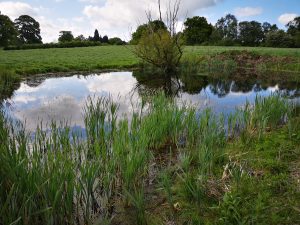Top 5 Reasons for Undertaking an Ecology Survey: A Guide for Landowners and Property Developers
Understanding the ecological value of a piece of land is of utmost importance, whether you’re a landowner looking to steward your land responsibly or a property developer planning a new project. One of the best ways to gain this understanding is through an ecology survey. Below, we explore the top five reasons why undertaking an ecology survey is a crucial step in land management and property development.
- Legal Compliance
An ecology survey is an essential tool for ensuring compliance with environmental laws and regulations. Many countries have stringent rules in place to protect specific species and habitats. By identifying the presence of such species or habitats on your land, an ecology survey ensures that your activities do not infringe on these protections, saving you from potential legal complications and penalties down the line.
- Informed Decision Making
An ecology survey provides valuable information about the ecological features of your site, helping you make informed decisions about its use. Whether you’re planning a construction project, considering different land management strategies, or assessing the potential value of a piece of land, the insights gained from an ecology survey can guide your decisions and help optimize your plans.
- Mitigating Environmental Impact
Ecology surveys play a vital role in assessing and mitigating the potential environmental impacts of land-use changes or development projects. They help identify sensitive areas that need to be protected and suggest measures to minimize harm to local wildlife and habitats. This proactive approach to environmental stewardship not only contributes to conservation efforts but can also enhance the reputation of your project or property.
- Enhancing Biodiversity
In addition to mitigating harm, ecology surveys can also inform efforts to enhance local biodiversity. By identifying existing habitats and species, the survey can suggest opportunities for creating new habitats, improving existing ones, or introducing native species. These actions can contribute to biodiversity net gain, a growing objective for many landowners and developers.
- Facilitating Stakeholder Engagement
Lastly, the findings of an ecology survey can facilitate engagement with various stakeholders, including local communities, environmental groups, and regulatory authorities. By clearly communicating the ecological value of your site and how you plan to protect and enhance it, you can build understanding and trust with these groups, making it easier to navigate any negotiations or consultations required for your project.
In conclusion, an ecology survey is more than just an assessment of your land’s ecology. It’s a tool for ensuring legal compliance, making informed decisions, mitigating environmental impacts, enhancing biodiversity, and facilitating stakeholder engagement. For any landowner or property developer, undertaking an ecology survey should be a key part of your strategy for managing and developing land responsibly.
In an era of unprecedented ecological challenges, biodiversity offsetting has emerged as a key tool for harmonising economic growth with environmental preservation. This approach seeks to balance the impact of development on nature, ensuring that any damage to one area is compensated by enhancement or protection of another. But what does biodiversity offsetting really entail,…
With growing global awareness around environmental conservation, the fulfilment of biodiversity net gain requirements has become increasingly integral in the world of property development. These requirements, designed to promote sustainable development practices, are now an essential consideration for law firms, property agents, landowners, and developers. This article explores what biodiversity net gain requirements are, why…
In the competitive world of property development, a Biodiversity Net Gain (BNG) consultant is fast becoming an indispensable asset. Providing specialist advice and insight, they guide developers, law firms, property agents, and landowners through the complexities of sustainable development. But what can a biodiversity net gain consultant do for your project? How can they ensure…
As we grapple with the global environmental crisis, the concept of biodiversity credits is gaining recognition in the world of property development. Biodiversity credits offer a practical and innovative approach to balancing the necessities of development with the urgency of ecological conservation. As law firms, property agents, landowners, and property developers navigate their projects, understanding…
For property developers and landowners, navigating environmental compliance can be a complex task. One important, yet often overlooked, component of this process is the bat survey. Conducting a bat survey is more than a due diligence task—it’s a crucial step in demonstrating compliance with environmental regulations, and therefore essential for any responsible development project or…
- « Previous
- 1
- 2


